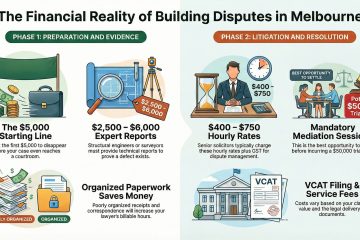If you’re going through a divorce or custody battle, or need legal advice regarding child support matters, one of your biggest worries might be how much a family lawyer will cost. Always discuss fees up front to avoid surprises later.
Legal fees depend on the complexity and scope of services required; however, an experienced family lawyer can offer invaluable support that makes any monetary investment worthwhile.
Retainer fee
A retainer fee is the upfront payment charged by your attorney prior to starting work on your case. It covers costs such as court filing fees and couriers and is usually non-refundable; additionally it covers initial legal research, document preparation and administrative tasks – however these fees can fluctuate based on both complexity and experience of your attorney.
Before hiring a family law attorney, it’s essential that you consider your budget carefully. Many lawyers offer consultations at low or no cost so you can meet them before making your choice. Furthermore, take the time to explore their background and customer testimonials before forming a judgment call.
Family lawyers offer a wide variety of services, including mediation, counseling and court proceedings before the family court. Their attorneys can help find amicable solutions in marital conflicts, child custody disputes, inheritance or alimony issues; additionally they can advise how best to safeguard assets and interests.
Cost of family lawyers depends on the complexity and duration of your case, with some charging a flat fee while others charging hourly. Furthermore, be mindful that additional services like expert witness fees and travel expenses may incur additional expenses.
Saving money when hiring a family attorney with an excellent reputation is easy if you use an online search tool to find top-rated attorneys with extensive experience and proven success in specific areas like divorce or property division law.
Expert witnesses are frequently required for complex family law cases, including divorce and child custody disputes with high asset values. Their rates typically range between $200 and $500 an hour depending on the nature and location of each particular case.
Hourly rate
Family lawyers often charge an hourly rate based on their experience and expertise; an experienced solicitor will usually charge more than their junior counterpart due to having acquired greater expertise with time. Furthermore, lawyers who practice in metropolitan areas tend to be more expensive than those working out of rural or regional locations; finally the cost of legal services may vary based on case complexity – for instance a straightforward divorce may cost less than fighting over custody for months with multiple witnesses involved in lengthy court cases requiring legal work and more witnesses than necessary.
Family lawyers typically charge an hourly rate of approximately $200; however, this figure can differ significantly depending on an attorney’s credentials and location. Experienced legal practitioners tend to charge higher hourly rates. Furthermore, this can depend on factors like whether it is a high-asset divorce case, which typically incur more expenses.
Family law cases tend to be complex and time consuming, and as such can become very expensive. Therefore, before beginning working together it is crucial that both you and your attorney discuss any fees or costs involved with litigation as soon as possible.
Family law attorneys typically request their clients pay a retainer fee when beginning work on a case. This money serves as payment for services rendered and will be subtracted off over time until it has been used up; some offer flat fee rates which provide more predictability.
Family law attorneys often charge hourly rates when working on complex cases, though these fees will usually be capped. When this limit is exceeded, their client will be informed before any surprises arise in their fees.
Many individuals worry about the costs associated with hiring family law attorneys, but it’s important to remember that their fees can often be quite reasonable. Finding a firm willing to provide an upfront breakdown of its fees and any additional expenses is key – The Law Offices of Robert Tsigler PLCC are experts at reporting transparent legal fees while helping their clients understand additional expenses associated with family law cases.
Fees for court appearances
Fees for family lawyer court appearances will depend on the nature and complexity of each legal issue involved, as well as on your chosen attorney’s reputation and track record. Your location also plays a factor; those working out of major cities or regions tend to charge higher rates than their counterparts in smaller towns or rural regions.
Expert witness fees, transcripts, and third-party process servers can add significantly to legal expenses. Some family lawyers offer flat fees for certain services which can help minimize overall costs; these rates often provide less expensive solutions such as covering faxes, photocopies, long distance phone calls and postage fees.
Understanding your family law expenses budget is essential, since even small amounts spent can have a serious effect on your finances if facing difficult situations. To avoid this happening again and again, discuss fees with your lawyer beforehand and arrange an affordable payment plan with them.
Cost of family attorney’s services will depend on whether or not a divorce or child custody case is contested or uncontested, as contested divorce and child custody matters require more extensive depositions, mediations, court time and more expensive legal services overall.
Family attorney fees can also depend on their client’s budget. Some attorneys allow clients to make deposits against a retainer fund and bill against it as the case progresses – though this method could potentially drain it before completion.
An alternative option for individuals without access to funds to cover full legal costs of family law cases may be hiring an attorney on a contingency fee basis. This fee arrangement is more commonly seen in civil matters like personal injury claims or insurance disputes, though it can also apply in family law matters. Under this payment structure, no money will be sent from client upfront until there has been a successful monetary settlement award made against their opponent – making this approach appealing for those without the funds necessary to cover full costs associated with legal representation in family matters.
Expert witness fees
Expert witness fees can significantly add to legal expenses in family law cases. They include hiring the expert witness as well as their time at deposition and trial; some experts may also need to travel from courtroom to courtroom, meet with counsel or review documents prior to deposition or trial; thus it’s essential that when budgeting for such costs.
Family lawyers offer various fee structures for family law cases, such as flat fees, hourly rates and contingency fees (typically not applicable in this field). Your billing method choice can have an effect on total costs; generally speaking, flat fees tend to be more costly than hourly rates.
Length of Case Influencing attorney fees
Other factors which can influence the cost of family law cases include:
Reputation and Track Record of Attorney. A well-regarded and reputed attorney will typically command higher fees than less experienced ones, and those with a history of swiftly and favorably settling cases tend to charge more than their counterparts who have dealt with more contentious or complex matters.
Geographic Location: The cost of family lawyer services may depend upon their geographic location. Lawyers who practice in larger metropolitan areas or regions tend to charge more due to differing living standards and increased costs associated with running a business in those locations.
Case Resolution Method: Your choice of case resolution method will have an impactful impact on legal costs. Litigation involves formal court proceedings and hearings that tend to be more costly compared to alternative dispute resolution strategies like mediation or collaborative law.
Time spent preparing and testifying at trial can have a direct impact on an expert’s fees. A new expert, for instance, may be subject to daily rates while waiting in courtroom prior to being called as an expert witness; this practice ensures expenses are covered while providing optimal witness performance at trial.


